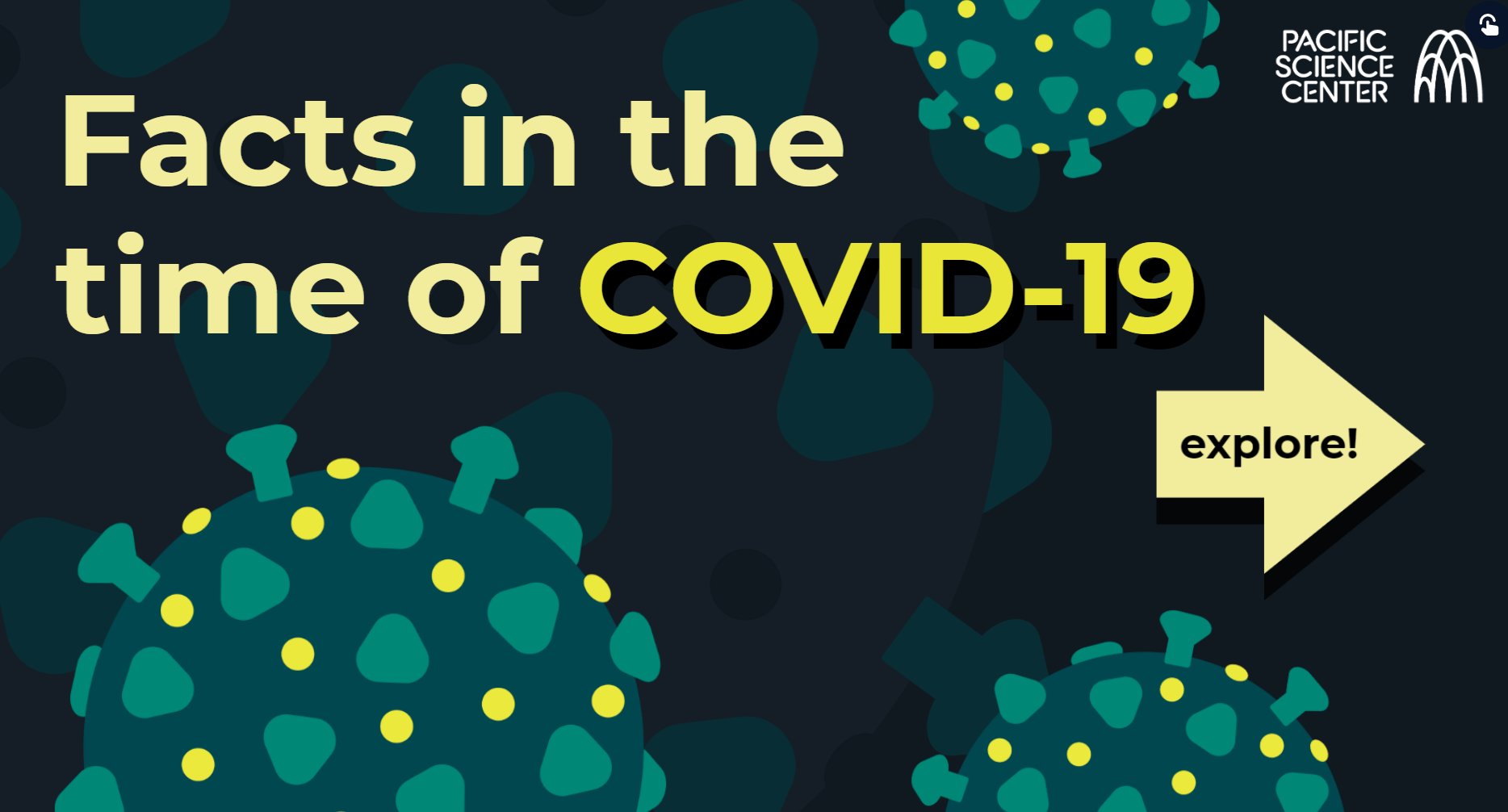During a pandemic, it’s more important than ever to avoid falling for or spreading misinformation and disinformation. But with so much new and changing information, how do you know what to trust? The Pacific Science Center (PacSci) has teamed up with the University of Washington’s Center for an Informed Public (CIP) on a new virtual exhibit, “Facts in the Time of COVID-19,” designed to help you navigate the ongoing pandemic and the infodemic that has come with it.
“With this pandemic, we’re watching the scientific process in real time. But it’s important to keep in mind that the 24-hour news cycle gives us access to sensational stories based on early research that will be revised later,” according to the exhibit, which offers suggestions for how you can make better sense of all the information you’re encountering and might end up sharing.
That includes a call to “notice your emotional reaction” before you potentially share something on social media. According to the exhibit:
When you read an article, before you share it, pay attention to your body. Did your heart start beating faster? Did your muscles tense?
If you are having a strong reaction, take a few deep breaths. Ask yourself why you are feeling so strongly about it, and whether those emotions might be impacting your judgement. If a story makes you mad or afraid, it can be easier to miss the details that don’t add up.
“Facts in the Time of COVID-19” is the second such collaboration between PacSci and the CIP. In June, PacSci launched a new virtual exhibit called “Uncovering Reality,” designed to help you spot the common ways people use graphs, charts and other data visualizations to misrepresent reality and understand why that matters. Part of the exhibit includes quizzes that ask you to identify the errors in certain problematic charts and graphs.
CIP faculty Jevin West, an associate professor at the UW Information School, and Carl Bergstrom, a UW biology professor, advised the Pacific Science Center on the development of both virtual exhibits.



